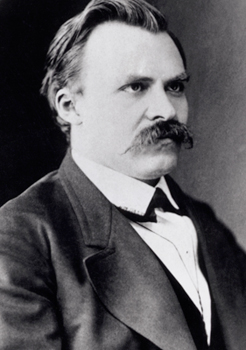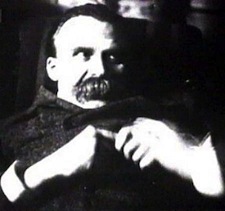SECTION III: How do I know?
Reading 7: from Nietzsche, The Gay Science
Like Kierkegaard, Nietzsche is an important father of existentialism. His focus is primarily on the human individual and the terms by which each lives his or her life. Unlike Kierkegaard, however, Nietzsche rejects traditional religion in all of its forms. He regards the concept of God as one that undermines and limits the fullest human development. His views on morality are as radical as they have been influential.
Click here for the Reading File in pdf format.
|
|
"What is good? Everything that heightens the feeling of power in man, the will to power, power itself. |
Nietzsche, c. 1882
|
Music inspired by Nietzsche Richard Strauss, Also Sprach Zarathustra (you'll recognize this tune) |
Nietzsche's final years were lost to mental illness.
|
Go on to Value Theory. |
|
Go back to Feuerbach. |
|


